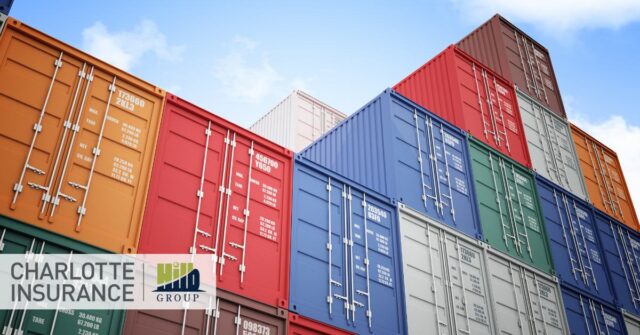There are several things that manufacturers need to consider when making sure that they have all of the right insurance policies in place. The first few consist of coverage on their buildings and equipment. The next are needed to ensure that the items they make are properly protected from the moment they’re completed until they reach their destination, whether it’s another company or the homes of consumers.
How can you protect your products from the moment that they become cargo? There’s actually a special kind of insurance for that. It’s called cargo insurance.
How Does Cargo Insurance Work?
Once your company’s products are loaded onto the truck, they’re out of your hands, literally. You have no control over the trucker’s actions, as well as those of the other people on the road. Your items can get damaged in transit in a number of ways, from ending up in an accident, dealing with the aftermath of a jackknifed trailer, or even from sliding around the trailer due to a lack of proper anchoring.
What happens when the goods that your customers have ordered fail to arrive in the correct condition? Your company obviously has to remake them and reship them, but if you have a cargo insurance policy, you won’t have to take the loss. Instead, the insurance company may reimburse you for the cost of the lost shipment, as well as any charges associated with the shipping itself, such as those paid by your customer on their end. The price of cleaning up your products from the side of the road may be covered as well.
Are These Exclusions?
As expected, there are some exclusions when it comes to cargo insurance. Not every type of cargo can be covered by one of these policies. For example, things like jewelry, precious metals, money, and even art aren’t covered due to the potential for losses. Those items will need to be shipped under a different insurance policy.
In addition, items that are radioactive, alive (like livestock), and explosive aren’t covered either. Neither are guns, ammunition, alcohol, tobacco products, or anything that can be described as contraband. Finally, cargo insurance doesn’t extend to overseas containers, so if you need to ship your goods in that manner, you’ll need a specialty policy.
Who Needs Cargo Insurance?
Although the exclusions seem numerous, there are actually many different types of cargo that are covered by these policies. The companies that qualify include concrete trucks and car haulers, as well as any business that hauls items on a flatbed, dually, box truck, or any type of trailer. This means that no matter how big your products are, they might be covered by a cargo insurance policy, as long as they aren’t in one of the excluded categories.
Have Questions? Contact Charlotte Insurance
Want to learn more about cargo insurance for manufacturing companies? Contact Charlotte Insurance. Our agents can explore and explain all available options and put together the insurance coverage plan your business needs.

